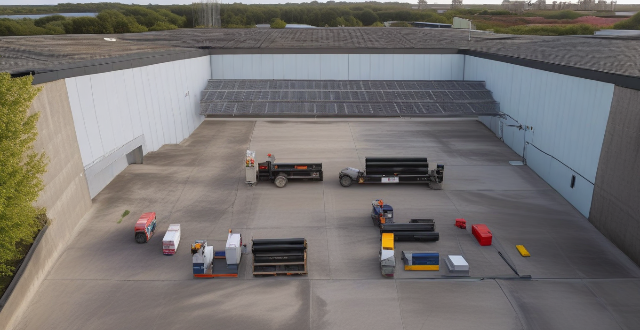Lead-acid batteries are commonly used in vehicles, UPS, and solar storage systems. To ensure their longevity, it's essential to maintain them properly. Here's how you can extend the lifespan of your lead-acid battery: prevent overcharging, avoid deep discharges, maintain proper fluid levels, keep the battery clean, and store properly when not in use. By following these maintenance tips, you can significantly extend the lifespan of your lead-acid battery and ensure reliable performance for years to come.

Maintaining a Lead-Acid Battery for Extended Lifespan
Lead-acid batteries are commonly used in various applications, including vehicles, uninterruptible power supplies (UPS), and solar storage systems. To ensure their longevity, it's essential to maintain them properly. Here's how you can extend the lifespan of your lead-acid battery:
Prevent Overcharging
Overcharging is one of the primary causes of lead-acid battery damage. It can cause excessive heat, evaporation of electrolyte, and degradation of the plates. To prevent overcharging:
- Use a Smart Charger: A smart charger regulates the charging process, preventing overcharging by switching to a float mode once the battery is fully charged.
- Monitor Voltage Levels: Keep an eye on the voltage levels during charging to avoid exceeding the recommended levels for your specific battery type.
Avoid Deep Discharges
Deep discharges can also shorten the lifespan of a lead-acid battery. When a battery is deeply discharged, the active material on the plates can sulfate, leading to permanent damage. To avoid deep discharges:
- Check Battery Levels Regularly: Monitor the state of charge of your battery and recharge it before it reaches a deep discharge level.
- Use a Low Voltage Disconnect: Install a low voltage disconnect that automatically disconnects the load when the battery reaches a certain low voltage threshold.
Maintain Proper Fluid Levels
Lead-acid batteries require maintenance of their electrolyte levels. Low fluid levels can lead to increased corrosion and reduced battery capacity. To maintain proper fluid levels:
- Check Fluid Levels Regularly: Inspect the fluid levels in each cell and top them off with distilled water as needed.
- Use Distilled Water: Always use distilled water when topping off your battery to avoid introducing impurities that could harm the battery.
Keep the Battery Clean
Dirt and corrosion on the terminals and case can interfere with the battery's performance and reduce its lifespan. To keep your battery clean:
- Clean Terminals: Regularly clean the terminals with a wire brush and a baking soda solution to remove corrosion.
- Wipe Down the Exterior: Wipe down the exterior of the battery with a damp cloth to remove dirt and grime.
Store Properly When Not in Use
If you need to store your lead-acid battery for an extended period, it's important to do so properly to prevent self-discharge and sulfation. To store your battery properly:
- Charge Before Storing: Ensure the battery is fully charged before storing it.
- Store in a Cool, Dry Place: Store the battery in a cool, dry location away from direct sunlight and extreme temperatures.
- Periodic Charging: Check the battery every few months and recharge it if necessary to maintain its charge level.
By following these maintenance tips, you can significantly extend the lifespan of your lead-acid battery and ensure reliable performance for years to come.